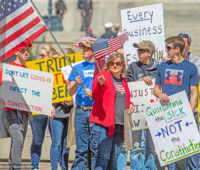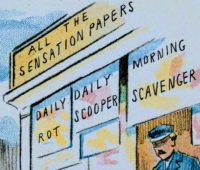Writing for the “Covid-19 and the Social Sciences” series, Jonathan S. Hack and Cole Edick examine the deference of the judiciary toward other branches of government during crises, such as the ongoing pandemic. How deferential will courts be toward broad government action by executives and legislatures that restrict rights and liberties in the name of ensuring public health and safety? Pointing to historical precedent and recent coronavirus-related cases brought before the judiciary in the United States, they argue that courts are likely to act as legitimating agents that promote and expand state police power in times of crisis.



















